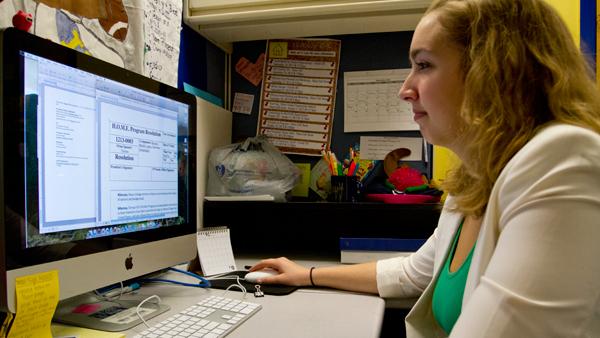With IC 20/20 moving forward, the Office of Residential Life is altering its current housing arrangements and process to coincide with the First-Year Residential Experience.
These changes will include the elimination of Terrace 6 and Terrace 9 suites, remodeling the housing application process and the addition of the option to buy out an entire double in the event of a vacancy.
Beginning next semester, Residential Life will be moving forward with its plans to require first-year students to live in the First-Year Residential Experience. By 2014, this initiative is expected to be in full effect. Locations of the FYRE have not been finalized yet.
With new resident halls to be sectioned off for freshman students, Linda Koenig, assistant director for housing services and communications, said they are eliminating some of the suites in the Terraces to create more space for upperclassmen.
A Terrace suite can be a six-person or a five-person mini-apartment. They have a triple room and a double room positioned around a common living room. Some suites come with balconies and have a private bathroom.
For each suite that is converted, that frees up space for two doubles and one single.
There are 24 suites in the Terraces residential area. Beginning next semester, Terrace 6 and Terrace 9 will no longer have suites. There are four suites in those Terraces.
This elimination will increase the amount of living space such as doubles and triples for sophomores while increasing the amount of singles for juniors and seniors.
Junior Marissa Osowsky, president of the Residence Hall Association, said the elimination of suites also comes as a result of National Survey of Residence Hall Student Satisfaction survey conducted by residential life in March, which showed that juniors and seniors are typically interested in those spaces.
“What they found in surveys that they’ve performed over the years is that juniors and seniors prefer that kind of housing and sophomores prefer doubles,” Osowsky said. “They want to give people what they want.”
Other reasons for this decision is the difficulty in filling the triples and frequency of room damage complaints and behavioral complaints from Terraces suites, Koenig said.
Sophomore Jordan Darkow lives in a suite in Terrace 4. Darkow said he made the decision to live in the suites because it served as an alternative to living in an apartment with friends.
Darkow said he is saddened by the decision.
“I find it disappointing,” Darkow said. “It’s better than living in a dorm, not quite at the level of living in a Circle or Gardens yet, which is really great.”
Another addition to housing changes is the apartment selection process, which has been revamped to ensure first priority for juniors and seniors. Before this new policy, apartments were granted according to a point system rank. Seniors had four points, juniors had three points and sophomores had two points. The point system will still be in effect for the new policy, however 50 percent of the apartment applicants must be juniors or seniors.
Osowsky said class standing will not based on credits but on the number of years a student at the college has lived on campus. For transfer students, Residential Life will look at their past residential experiences.
Juniors and seniors will choose housing in the spring, freshmen will chose housing after orientation and sophomores will pick housing in the summer.
In addition to getting first priority in the apartment selection process, priority will continue to go to juniors and seniors for selection of singles on campus. However, this rule will not apply to students who are living in learning communities.
Residential Life will also offer students the option of potential buyouts. If a student is expecting a potential vacancy, they have the option to purchase the entire room for the semester to ensure that no other student is placed there. This option is an additional cost of $600, however buyout requests will not be guaranteed.
This option was available in the past but was eliminated because of space constraints, Koenig said.
The new housing policies come at a time where the college is implementing curricular changes. Koenig said communication is key to ensure a smooth transition.
“My biggest challenge is trying to help students understand what to expect for housing selections,” Koenig said. “It’s a totally different process. We’ll do what we can to address concerns.”








